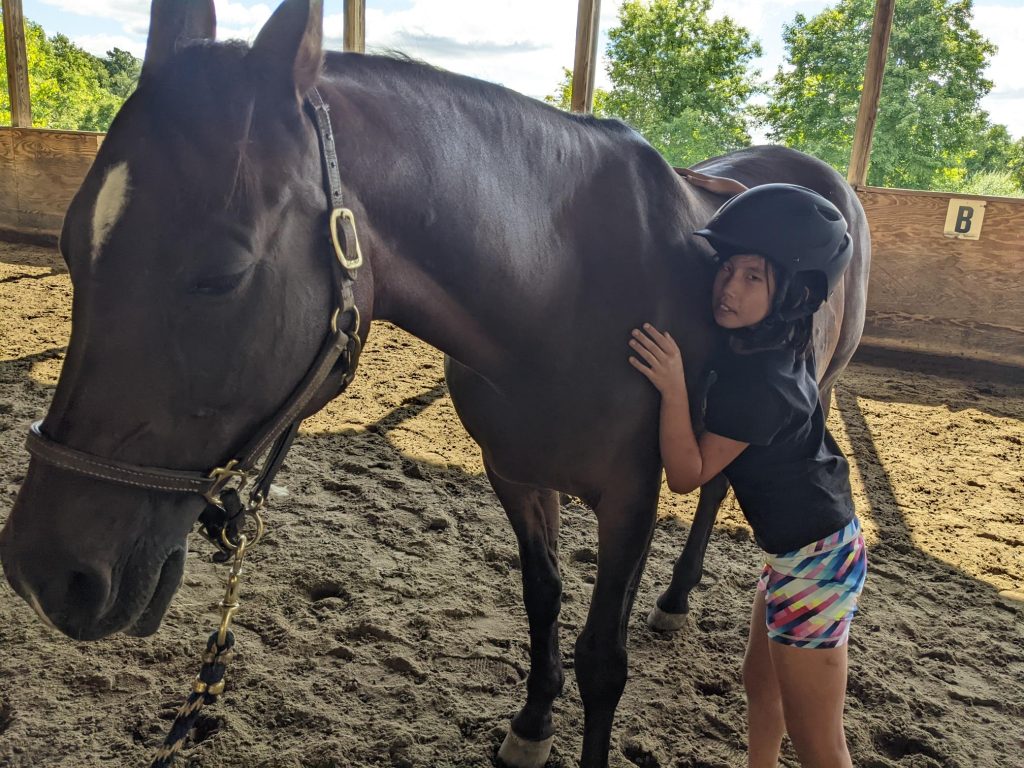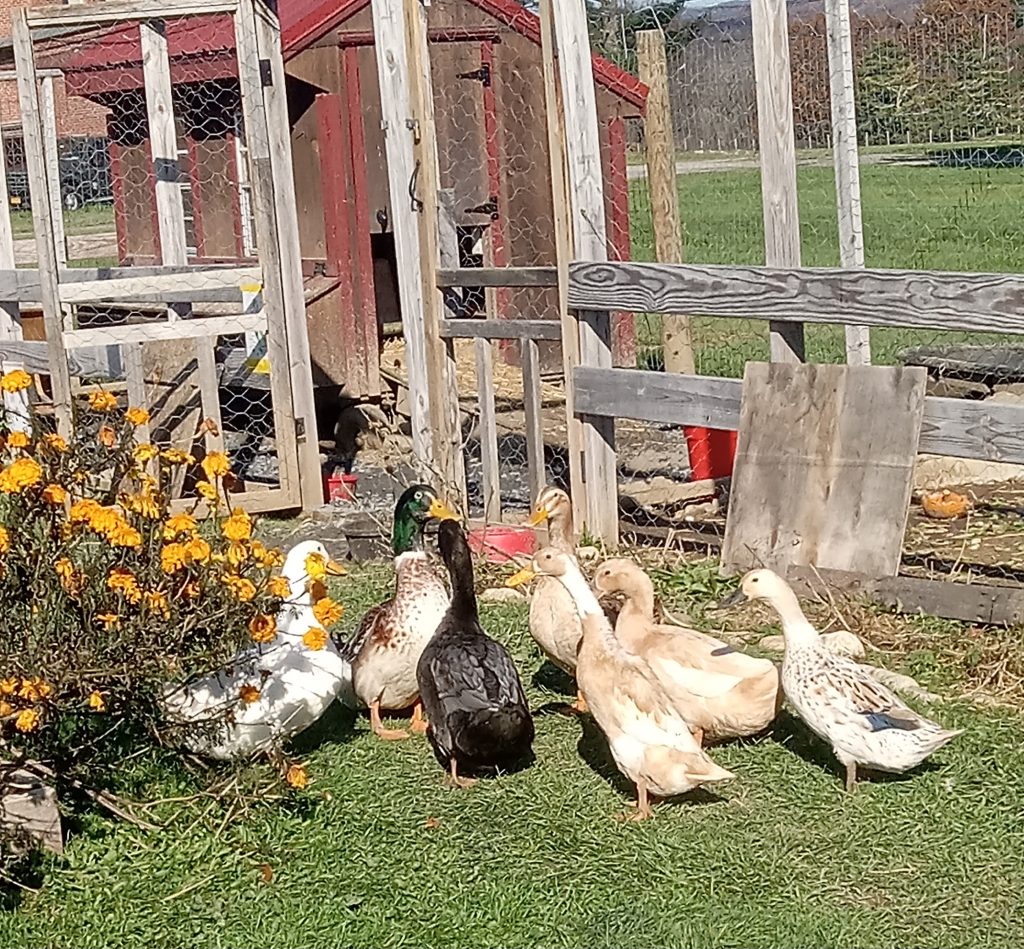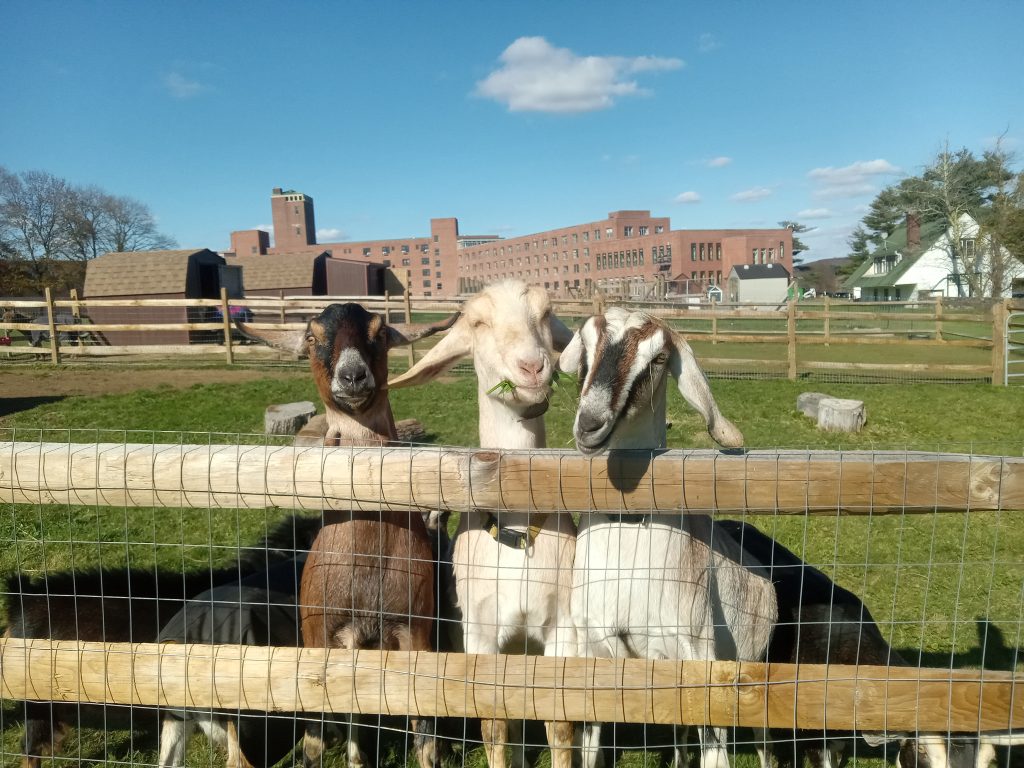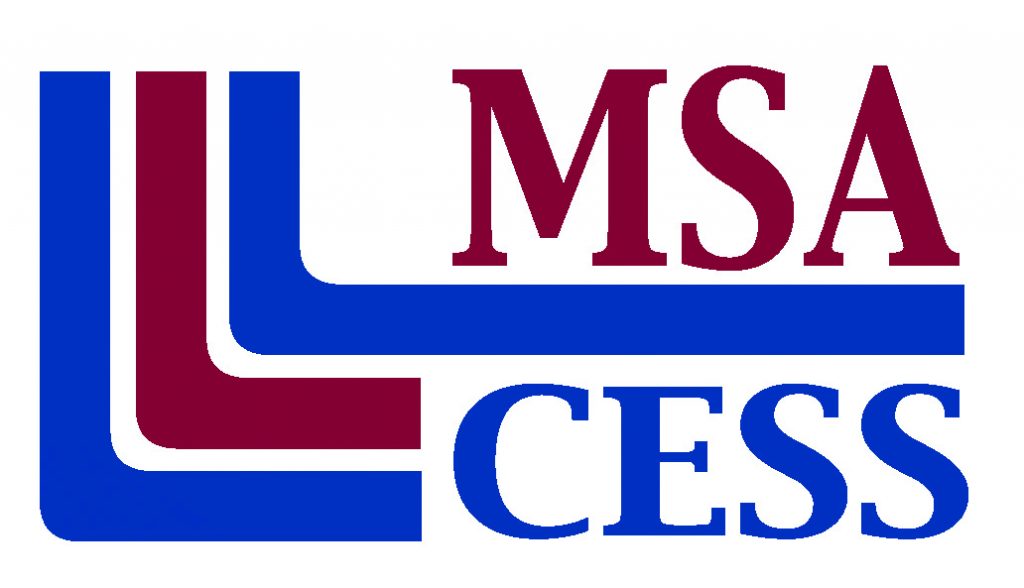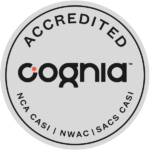The farm program at Shrub Oak is a special one. The students not only enjoy being outdoors, but they learn important skills while participating in farm activities. Hands-on learning allows students to apply what they have learned in the classroom, to develop critical thinking and problem-solving skills, and to practice important social skills. The farm also represents Shrub Oak’s transdisciplinary approach at its very best. If you’ve toured campus, you have probably heard us reference an example of this. One beautiful morning, two students were planting side by side. They were with our farmer and one of our math teachers who was teaching them about measurement. But the two students weren’t communicating with each other. When their teacher observed this, she radioed one of our speech therapists who immediately found her way to the garden to facilitate communication. Watching the two students subsequently engage with one another was an unforgettable moment.
Students learn a lot about horticulture at Shrub Oak: from germinating their first seed all the way to enjoying the wonderful vegetables it will bear. They also learn a lot about life. As all avid gardeners will attest, it’s truly a rewarding experience. It teaches that hard work, careful attention, and patience can develop into something extraordinarily gratifying. Our students also learn practical lessons with transferable job skills by working on the farm. For example, our students operate Shrub Oak’s Little Oak Farmstand, bringing farm fresh produce to our very own market, and learning about marketing, sales, and customer service in the process.
We also have host of animals on our farm including a miniature horse, donkey, pigs, goats, rabbits, chickens, and ducks. Students deeply enjoy just spending time with our animals, reaping many therapeutic benefits. Our clinicians collaborate closely with our farmers to identify appropriate farm-related activities for students to participate in, a sampling of which is below:
- Shaking out the straw flakes in Oscar’s enclosure; Oscar is our potbellied pig!
- Using the hose to create a muddy area; pigs love to take mud baths!
- Grooming Tater and Tot, our donkey and pony.
- Taking Tater for walks, being careful not to touch his ears.
- Creating enrichment toys for our goats; Daisy is the friendliest.
- Feeding veggies to Hazel and Spunky, our rabbits.
- Collecting eggs from our chickens and ducks; Cheese and Quackers are two student favorites!
Another fun aspect of our farm program is watching the students put their creativity to work. Our amazing Director of Agriculture, Samantha, always incorporates fun activities so it’s not just weeding or feeding chickens. Students paint landscapes, make their own birdfeeders, create their own bouquets from our beautiful flowers, make benches for the garden out of recycled pallets, as well as many other hands-on crafts. Sam has even found materials for students to build their own tents out of branches where they can take time away and just enjoy the peaceful noises of the garden.
And maybe that’s a little bit of what singer-songwriter Joni Mitchell had in mind when she wrote the lyrics to Woodstock: “. . .and we’ve got to get ourselves back to the garden. . .I don’t know who I am but you know life is for learning.” For certain, Shrub Oak students are always happy to “get back to the garden,” where they not only find peace and experience joy, but learn about horticulture, themselves, and the world around them.



